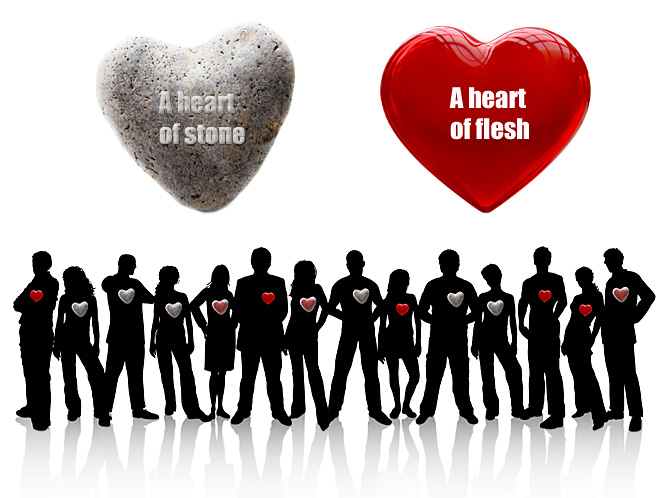The future of jobs and work — from futurist.com by Glen Hiemstra
.
Also see:
- Top 10 Future Careers: 2050 and 2100 — from futurist.com by Mallory Smith
- Harold Jarche’s perspective on living in a post-jobs economy
The future of jobs and work — from futurist.com by Glen Hiemstra
.
Also see:
Forecasts Special Report — from The World Future Society and The Futurist magazine
This new report presents some of the most exciting new developments they’ve covered over the past year as well as:
11 It is written:
“‘As surely as I live,’ says the Lord,
‘every knee will bow before me;
every tongue will acknowledge God.’”
12 So then, each of us will give an account of ourselves to God.
From DSC:
Steven VanderLeest maintains a blog called Deus Ex Machina (Latin for “God in the Machine”). The other day he wrote the words that I remember singing at First Prebyterian Church of Evanston many years ago. This morning, those words come back to me and I can’t help but post something in light of the situation that occurred last night and continues to occur this morning in Boston — an event which is all over the American media, but the type of event that regrettably occurs all too frequently throughout the world (bombings, killing, violence, hatred, evil, and more). My soul is troubled, heavy, and cries out:
Kyrie, eleison!
Christe, eleison!
Kyrie, eleison!
Lord, have mercy on us.
Christ, have mercy on us.
Lord, have mercy on us.
…and then the words come to my mind…”We are all in this boat together.”
I will give you a new heart and put a new spirit in you; I will remove from you your heart of stone and give you a heart of flesh.
.

Looking at a sampling (below) of the emerging technologies starting to hit the landscapes…
I am struck with the thought that, we need as many hearts of flesh out there as possible!
I hope that these types of very powerful technologies are used by people who care about each other and who respect the dignity of others; those who lift up and value life.
- Are we paying enough attention to information technology’s dark side?
Excerpt:
Technological power is not new, of course, but information technology’s exponential pace and declining cost is changing how the global game is played and who the players are. Control of technology is passing from the richest states and governments to smaller groups and individuals, and the results are both inspiring and terrifying. As Goodman says, “The ability of one to affect many is scaling exponentially—and it’s scaling for good and it’s scaling for evil.”- Pentagon to deploy more than 100 cyber teams by 2015
- The future of surveillance will turn society into a massive online game (Quick comment from DSC: While I dislike the title of this article, it’s very relevant to this posting.)
- A search engine for The Internet of Things (IoT)
Shodan, a little-known search engine, is the go-to site to find out about nuclear power plants control centers, gas stations, and highway signs connected to the internet.- 13-foot 12,000-pound mechanized robot suit now for sale in Japan
- This week in bots: The robots we build to kill for us
- Who’s responsible when robots kill? ‘We Robot’ Conference hunts answers
- The terrifying future is 3D printed weapons <– the dark side of 3D printing
and/or
This item on the DoD’s PETMAN project- For some, Google Glasses raise privacy concerns
As the launch of the latest interactive technology creeps closer, discussions about how the public will adapt have started to surface.- Facebook addresses Facebook Home privacy concerns
- Why Facebook Home bothers me: It destroys any notion of privacy
- Fake Twitter followers become multimillion-dollar business
- 3D scanner scans objects from over a half mile away, watches the grass grow
5 But he was pierced for our transgressions,
he was crushed for our iniquities;
the punishment that brought us peace was on him,
and by his wounds we are healed.
6 We all, like sheep, have gone astray,
each of us has turned to our own way;
and the Lord has laid on him
the iniquity of us all.

The Internet of Things: When GE sees a $ trillion opportunity, you might want to take it seriously. — from thebln.com by Mark Littlewood
.
— The link/posting above is from March 12, 2013
— The item below is from November 26, 2012
Some sample images:
Jesus has risen
1 On the first day of the week, very early in the morning, the women took the spices they had prepared and went to the tomb. 2 They found the stone rolled away from the tomb, 3 but when they entered, they did not find the body of the Lord Jesus. 4 While they were wondering about this, suddenly two men in clothes that gleamed like lightning stood beside them. 5 In their fright the women bowed down with their faces to the ground, but the men said to them, “Why do you look for the living among the dead? 6 He is not here; he has risen! Remember how he told you, while he was still with you in Galilee: 7 ‘The Son of Man must be delivered over to the hands of sinners, be crucified and on the third day be raised again.’ ” 8 Then they remembered his words.
.
From DSC:
Check out this very cool news from my friend and Bible Study fellow — Mr. Patrick Mohney, President of SEA Biofuels, LLC
This is really amazing.
First of all, people in the developing world, even today, use either campfires or some other smokey cooking system. This type of cooking is the norm for three billion people today, this leads to millions of deaths per year, as well as a leading contributor of greenhouse gases. Also, I learned that in some parts of the world, women that normally collect the cooking fuel, are the subject of physical violence and rape as they collect fuel in a territory that another clan, family or tribe feel belongs to them. I hear these things and think, “Seriously, we have to fix this!”
We could fix this, if we had a clean and environmentally friendly alternative fuel that they could afford. Now we have just that. We make fuel from excess agricultural waste like rice husks, coconut shells or almost any woody bio-material.
The stove-fuel combo is the most efficient in the world, but the reason that I am excited about it, is that it is less expensive to operate for the consumer than the alternative fuels. As it turns out, people that use wood or charcoal to cook with, usually pay for it, and it is not cheap. Our fuel is usually half to three quarters of the price of the status quo fuel at retail to the consumer. This is why our stove and fuel is presently the only option that is scale-able and can help millions, or billions of people.
I know you are busy, but we can solve this for half of the worlds people, if you could just pass this on or make some noise. Like us on FB.
Our mission statement is, “Be a Blessing to others and you will be Blessed”.
God Bless you and your family.
Patrick Mohney
President
SEA Biofuels, LLC
From DSC and Patrick:
Contribute something today — make the world a better place to live in.
What is Maundy Thursday?
What do Christians celebrate on Maundy Thursday?
Excerpt:
Maundy Thursday is observed during Holy Week on the Thursday before Easter. Also referred to as “Holy Thursday” or “Great Thursday” in some Christian denominations, Maundy Thursday commemorates the Last Supper when Jesus shared the Passover meal with his disciples on the night before he was crucified. In contrast to joyful Easter celebrations when Christians worship their resurrected Savior, Maundy Thursday services are typically more solemn occasions, marked by the shadow of Jesus’ betrayal.
…
What Does “Maundy” Mean?
Derived from the Latin word mandatum, meaning “commandment,” Maundy refers to the commands Jesus gave his disciples at the Last Supper: to love with humility by serving one another and to remember his sacrifice (emphasis here and purchased/modified graphic below from DSC).
Visualizing the future urban world — from fastcoexist.com by Ariel Schwartz
A new app called Urban World beautifully projects how cities around the world are going to explode in growth and economic power by 2025.
Also see:
Coop’s Column – Royally Welcomed — by Dale Cooper
….the whole multitude of disciples began to praise God joyfully with
a loud voice for all the deeds of power that they had seen, saying:
“Blessed is the King who comes in the name of the Lord.
Peace in heaven and glory in the highest heaven.” (Luke 19.37-38)
Excerpt:
I give the rest of this column to Jorge Bergoglio, former archbishop of Buenos Aires, recently elected as Pope Francis I. In his Palm Sunday 2008 address to his Argentine flock, the Archbishop declared:
“Today, here in Buenos Aires, like in Jerusalem on that day, the street made way for Jesus. The street received Him properly. The crowd stood, begged for blessings, blessings for their families, blessings for their businesses, their houses, their autos… Blessing, what does that [really] mean? [It means] that Jesus “speak well” of something, that He approach! That He enter families, hearts, homes, autos, businesses…Jesus out in the street, interacting with the crowd…There. His desire is, just as the gates of the city were opened to Him, the same is done with the doors to our hearts. Every Holy Week He asks the same thing: “Open your heart to Me. I’m not here to mortify you! I’m not here to boss you around! I’m not here to take anything from you…I’m here to give you everything. I want to make you happy.” That’s what He’s telling us. If we slam the doors to our hearts in His face, He suffers. Although He is used to it, He suffers. And we lose the opportunity to become happy.